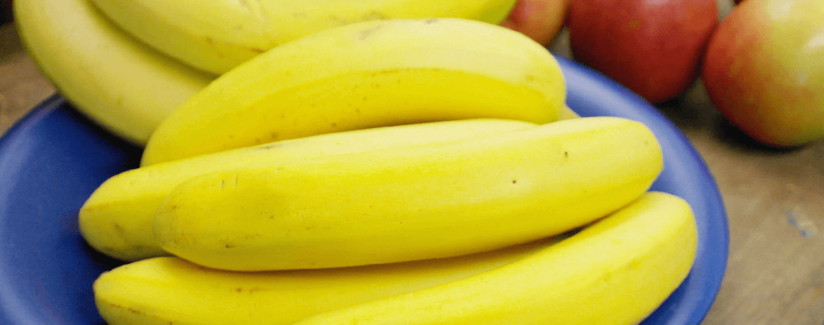
Should You Put Bananas in the Refrigerator?
Bananas are one of the most popular fruits in the world. In fact, more than 100 billion bananas are eaten around the world every year. Bananas are a great source of nutrition because they are fat and cholesterol free and a good source of fiber, vitamin C and potassium. With that many bananas eaten in a single year, there’s no surprise that there are a lot of questions surrounding how to store bananas. Specifically, if it is safe, and effective, to store bananas in a refrigerator.
We reached out to expert Dr. Jeffrey Brecht, Postharvest Physiologist at the University of Florida, to pick his brain about proper banana storage.
Is it safe to store my bananas in the refrigerator?
Dr. Brecht: “Never, never, never put bananas in the refrigerator!
Okay, that’s clear! But why not?
Dr. Brecht: “Bananas are a tropical fruit that is very chilling sensitive. Even a few hours below 58 degrees can injure bananas, and most refrigerators are set at 38-41 degrees. The visual symptom of chilling injury is called ‘under-peel discoloration’ and is due to discoloration of the vascular traces that run through the peel, causing a smoky appearance to develop. Even slight chilling causes aroma loss, so chilled bananas also don’t taste good. The chilling injury also causes loss of vitamin C in bananas.”
We were warned in an old jingle about storing our bananas in the refrigerator, too. The advice we learned from the jingle? “Bananas like the climate of the very, very tropical equator, so you should never put bananas in the refrigerator.”
Does storing them in the freezer make them last longer?
Dr. Brecht: “Bananas can be frozen for use in baking, but not for eating fresh. It’s best to peel the fruit and mash the pulp with a little lemon juice to inhibit browning, which can occur while the pulp is in the process of freezing. Then put it in a freezer bag.”
So, when it comes to storing your bananas, it’s best not to put them in the refrigerator because of the loss of nutritional value and potential damage to the fruit.
But what is the best way to keep bananas fresh? Or how can a banana be ripened more quickly?

























